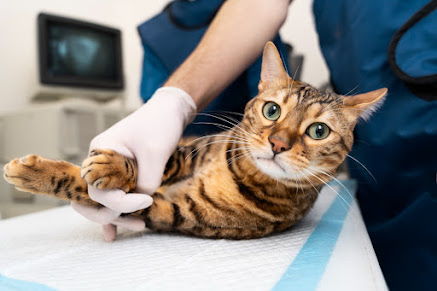Overweight Puppy? Here's How to Help Them Lose Weight
Puppies, especially adolescents, may sometimes struggle with excess weight, which can have negative implications for their health. While very young puppies rarely require weight loss diets, there are various measures that can be taken to ensure their healthy growth. This article explores practical tips and considerations for helping pudgy puppies shed extra pounds and maintain a healthy weight throughout their growth stages.
Customized Feeding Approach:
Instead of free feeding or leaving food available all day, it is important to establish designated mealtimes and offer measured amounts of food. While dog food package guidelines provide a general framework, individual adjustments should be made in consultation with a veterinarian to meet the specific needs of each puppy. Restricting nutrition without professional guidance may lead to health problems.
Treat Reduction and Increased Play:
One of the simplest ways to aid weight loss in puppies is to reduce or eliminate treats and increase play sessions. Moderately overweight pups can benefit from these changes, as they help burn calories and promote overall fitness.
Lite Diets for Adult Dogs:
For overweight adult dogs, reduced-calorie or "lite" foods are often recommended. These diets typically modify the fat content, dilute calories with water, or increase the volume of the product. However, it's important to note that lite diets may not provide the necessary nutrients for the growth of young puppies. Consultation with a veterinarian is crucial before making any dietary changes.
Beware of Lite and Diet Formulas for Puppies:
Labels such as "lite" or "diet" on pet food packages indicate lower calorie content compared to regular formulas from the same brand. However, it's essential to consider the specific calorie count and ensure appropriate feeding amounts. Puppies may consume more of the diet food to compensate for lost calories, potentially leading to weight gain. Vet-approved measured portions are still necessary, regardless of the type of food.
Adjusting Feeding Schedule:
Dividing the daily food portion into several small meals throughout the day can prevent puppies from feeling deprived. This approach boosts metabolism and burns calories more effectively than fewer large meals. Once the target weight is achieved, transitioning to feeding twice a day helps maintain a healthy schedule.
Therapeutic Diets:
In cases where young dogs are severely obese, a veterinarian's supervision may be required. Special therapeutic weight-loss diets offered by major pet food manufacturers can provide effective solutions. These diets may increase protein content, regulate insulin levels, or incorporate specific vitamins like L-carnitine to promote fat burning and weight loss.
Exercise for Weight Management:
Controlling a puppy's diet is just the first step; regular exercise is essential for overall health and weight management. Puppies and adult dogs should engage in at least 20 minutes of aerobic exercise twice a day. The exercise routine should be tailored to the individual breed and gradually increased to avoid overexertion.
Incremental Exercise Approach:
Overweight puppies may struggle to maintain prolonged activity, so it's important to start with shorter exercise sessions and gradually increase duration. Controlled leash walking at the puppy's pace is an excellent way to build stamina and burn calories. As the puppy loses weight, energy levels will increase, allowing for more extended and vigorous exercise.
Incorporating Challenges in Daily Routine:
Making puppies work for their food can help burn calories and add stimulation. Placing food at the top or bottom of the staircase encourages climbing, while using ramps or elevating food bowls can promote movement. Additionally, treat balls or puzzle toys filled with a portion of the daily food ration can provide mental and physical stimulation while controlling portion sizes.
Healthy Snack Options:
To avoid incessant begging for more food, reserve a small portion of the puppy's regular diet as treats. If approved by the veterinarian, healthy snacks like carrots or green beans can also be offered in moderation. Commercial treat balls and puzzle toys can serve as alternatives, engaging the puppy while controlling portion sizes.
Conclusion:
Managing the weight of growing puppies requires a customized approach that focuses on balanced nutrition, controlled feeding schedules, and regular exercise. By following these guidelines and seeking guidance from a veterinarian, pet owners can ensure their puppies maintain a healthy weight throughout their growth stages, setting the foundation for a lifetime of good health.






